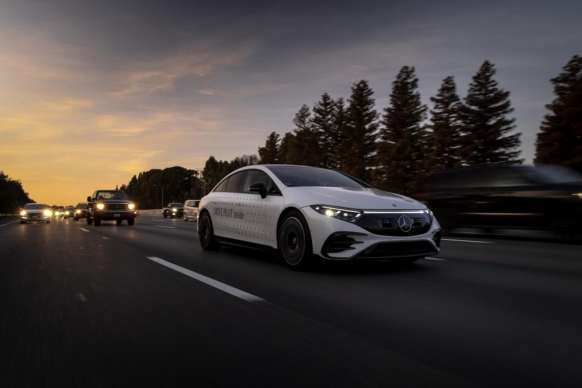
News on October 23: Mercedes-Benz has achieved significant growth in the U.S. electric vehicle market in recent years, but a new report shows that its dealers are facing inventory backlogs and slower-than-expected sales.
It is understood that Mercedes-Benz sold 10,423 electric vehicles in the third quarter, a year-on-year increase of 284%. Despite a significant increase in sales, the EQ range of electric vehicles has not been selling as fast as other luxury cars.
According to an Edmunds data report cited by Automotive News, Mercedes-Benz EQ series electric vehicles take an average of 82 days to sell at dealers, compared with the average sales time for the entire luxury car segment. It only takes 57 days, while BMW models take about 38 days.
Automotive News spoke with a number of anonymous Mercedes dealers who pointed to shortcomings in Mercedes-Benz's response to increasing electric vehicle competition and the product itself, which has led to inventory level rise. One authorized Mercedes dealer said he currently has more than six months of electric vehicles in stock, compared with just 50 days of Mercedes' gasoline-powered vehicles.

The dealer also mentioned: "The price premium is too high, especially on the high-end models of the EQ series, and there is almost no leasing support. The EQ models lack some classics The appeal of gas-powered models."
A Mercedes-Benz spokesman declined to comment on internal discussions with dealers.
Mercedes-Benz USA CEO Dimitris Psillakis blamed slow sales on a lack of product variety and the novelty of the electric vehicle market. He also noted that supply chain issues have prevented dealers from diversifying their offerings, keeping some more affordable models, such as the EQB compact electric car, from entering the market.
Psillakis also said that Mercedes did not offer any affordable EQB models at the beginning of this year. Although things are improving, he believes it will still take time for electric vehicles to make their way into dealers' inventories. In the luxury car market, issues such as inflation and rising interest rates are also hampering EV sales.
According to a Cloud Theory data report cited by Automotive News, the average time to sell an electric vehicle was 36 days at the beginning of this year, which had risen to 80 days by September.
This problem is particularly serious for Mercedes and the luxury car market as a whole. The average time on sale for luxury electric vehicles increased 73% in September compared with the same period last year, according to Edmunds data. For Mercedes dealers, that's a 110% year-on-year increase.
"People who are willing to buy have already bought." said Ivan Drury, director of Edmunds Insights.
Earlier this year, Mercedes delayed its electrification plans, pushing back a target date from 2025 to 2026 for half of its car sales to be plug-in hybrids or fully electric vehicles.
The above is the detailed content of Mercedes EQ electric car sales weak, price premium an obstacle. For more information, please follow other related articles on the PHP Chinese website!




